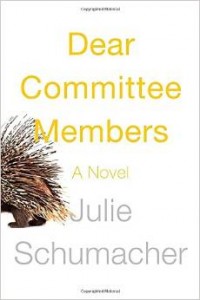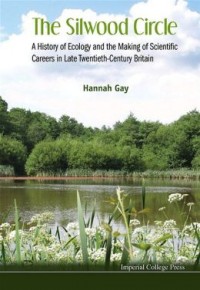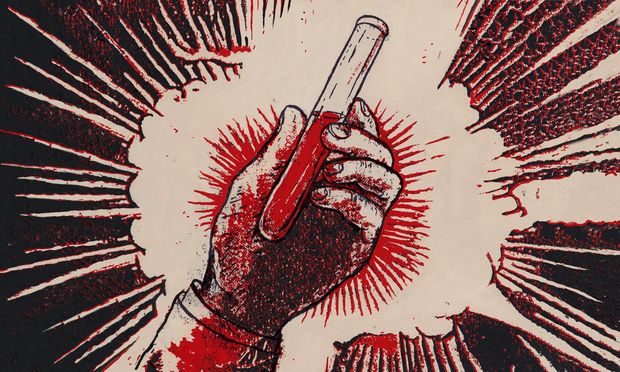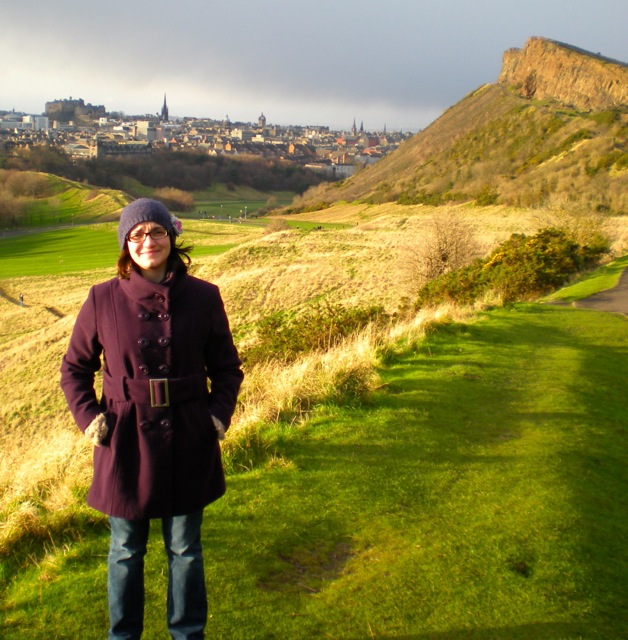Last week, the life scientific took me to Guarda, Switzerland where I attended a week long writing course focused on topics in evolutionary biology. At night, students and faculty gathered for “arm chair” lectures, casual discussions held in a living room where rotating faculty members delved into deeper discussions of a particular research interest. Sometimes lectures touched the topics of career advice and professional development; at other times stories of personal chutzpah and unconventional methods yielded memorable vignettes of the happy accidents and personalities lying behind scientific discoveries.
On Wednesday, it was Joan Strassmann‘s turn to sit in the armchair, and with a room full of first year students listening attentively, she asked us: well fellow biologists, what is an organism?
At first, I sat in the camp of Potter Stewart, thinking “I’ll know it when I see it,” an answer that is both useless and vague for defining an important unit of evolutionary biology. As I began thinking of more useful possible definitions, it seemed that like many definitions in biology, the task would be nebulous. Not only are definitions tricky things to create, the things we choose to define or not define can be arbitrary. Scientists have hyper-enthusiasm for defining species and populations, but as Joan argued during her arm-chair lecture, a definition for an organism seems to have been neglected. So how should we define an organism?
Joan gave the definition that an organism is the smallest unit of adaptation. If this were mapped onto axes of conflict and cooperation, the organism would fall in the quadrant of highest cooperation and lowest conflict.
An interesting definition, but how does it fare with current presumptions we have about organisms? Would the human microbiome be a part of the same organism as human cells? How would we differentiate between parasites being a part of the human organism and mutualists being a part of the human organism? Measuring the distinction between cooperation and conflict for different associating microbes could be problematic, especially when we can’t always measure costs and benefits of the microbes inside us.
I’ve started thinking about other ways we might be able to define an organism.
(1) An organism could be a unit sharing a genetic identity. But this yields problematic questions: are twins the same organism? Are all asexual clones one organism?
(2) An organism could be defined spatially. Are all cells linked tightly in space a unit of adaptation with a collective identity?
(3) We could define an organism by the second part of Joan’s definition, considering conflict vs. cooperation. Are cancer cells that have high conflict with surrounding tissues a separate organism?
Are there other ways we could or should define an organism?
Post comments if you have ideas. In the meantime, my recent travels have taken me places where I photographed some organism-things, so to prompt organismal thinking, here are pictures:
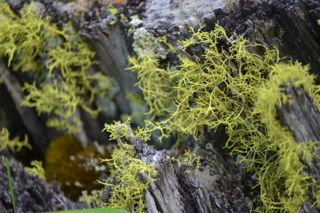
A lichen: One organism or two?
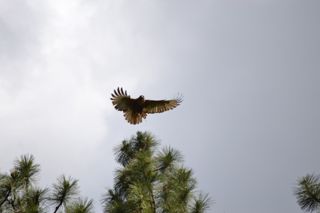
Red-tail hawk ready to land

A real-life unicorn: a bighorn with a missing horn near the Grande Ronde river, Washington State
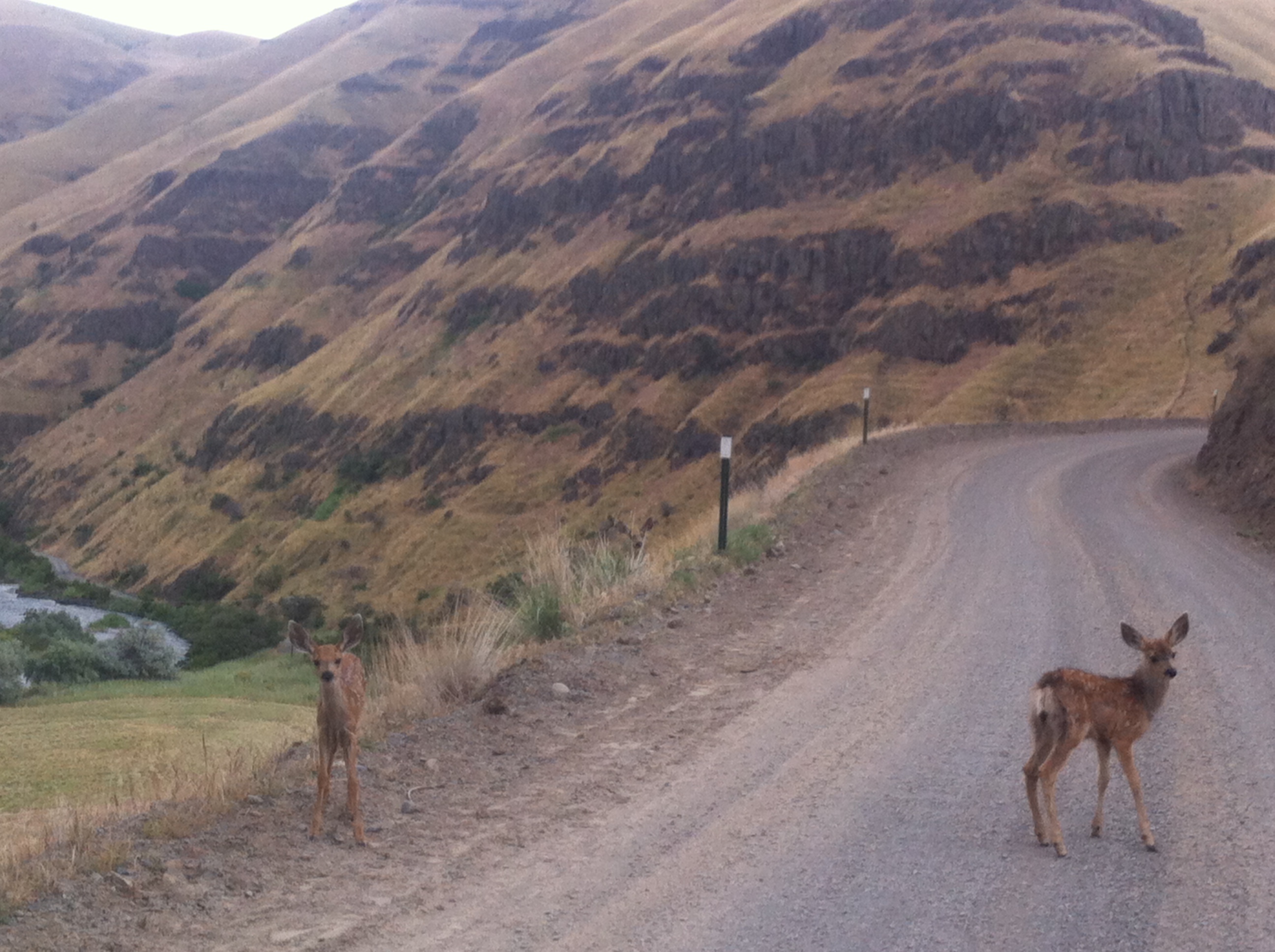
Pair of fawns in Hells Canyon, Washington State
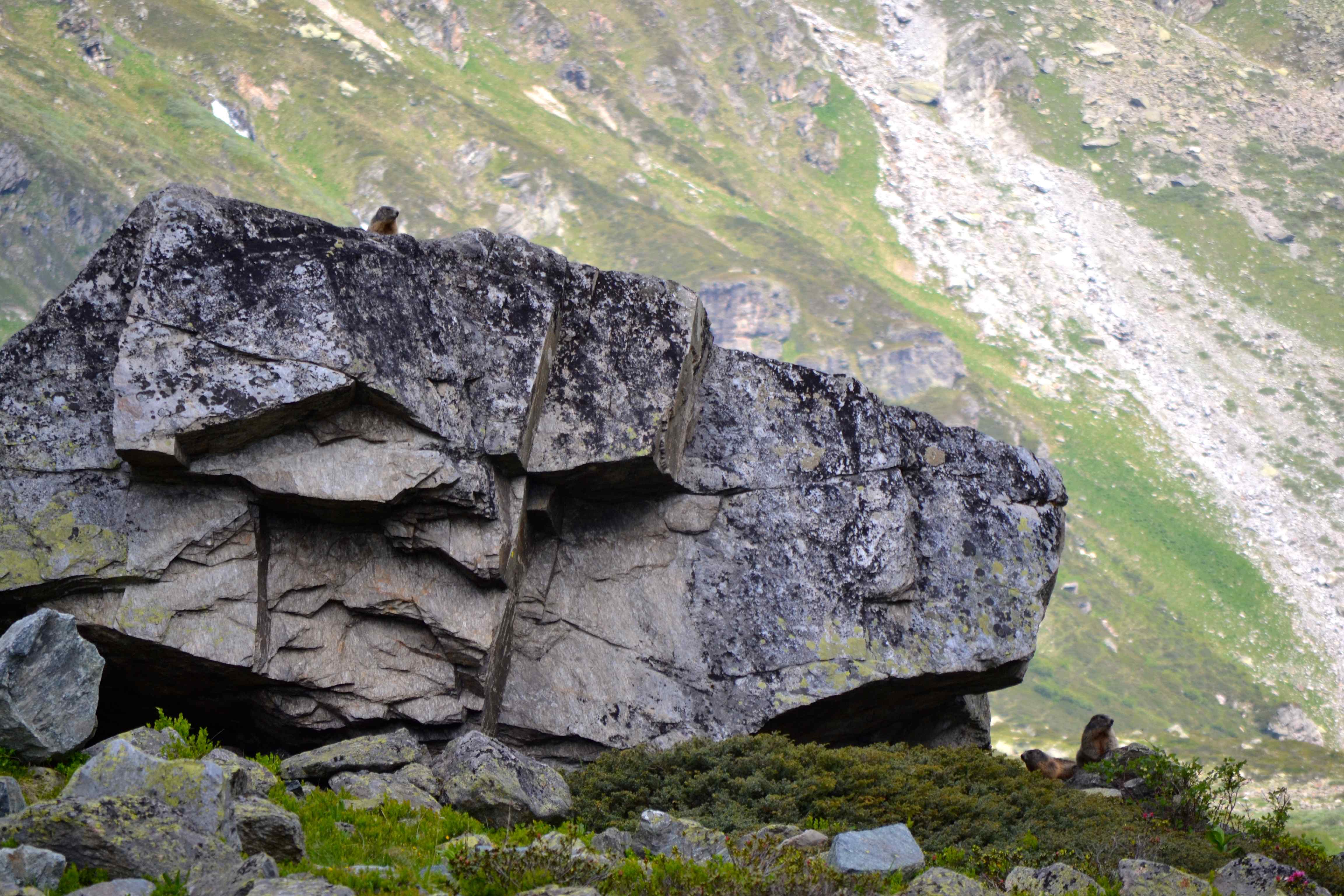
Marmots spotted in the Swiss Alps
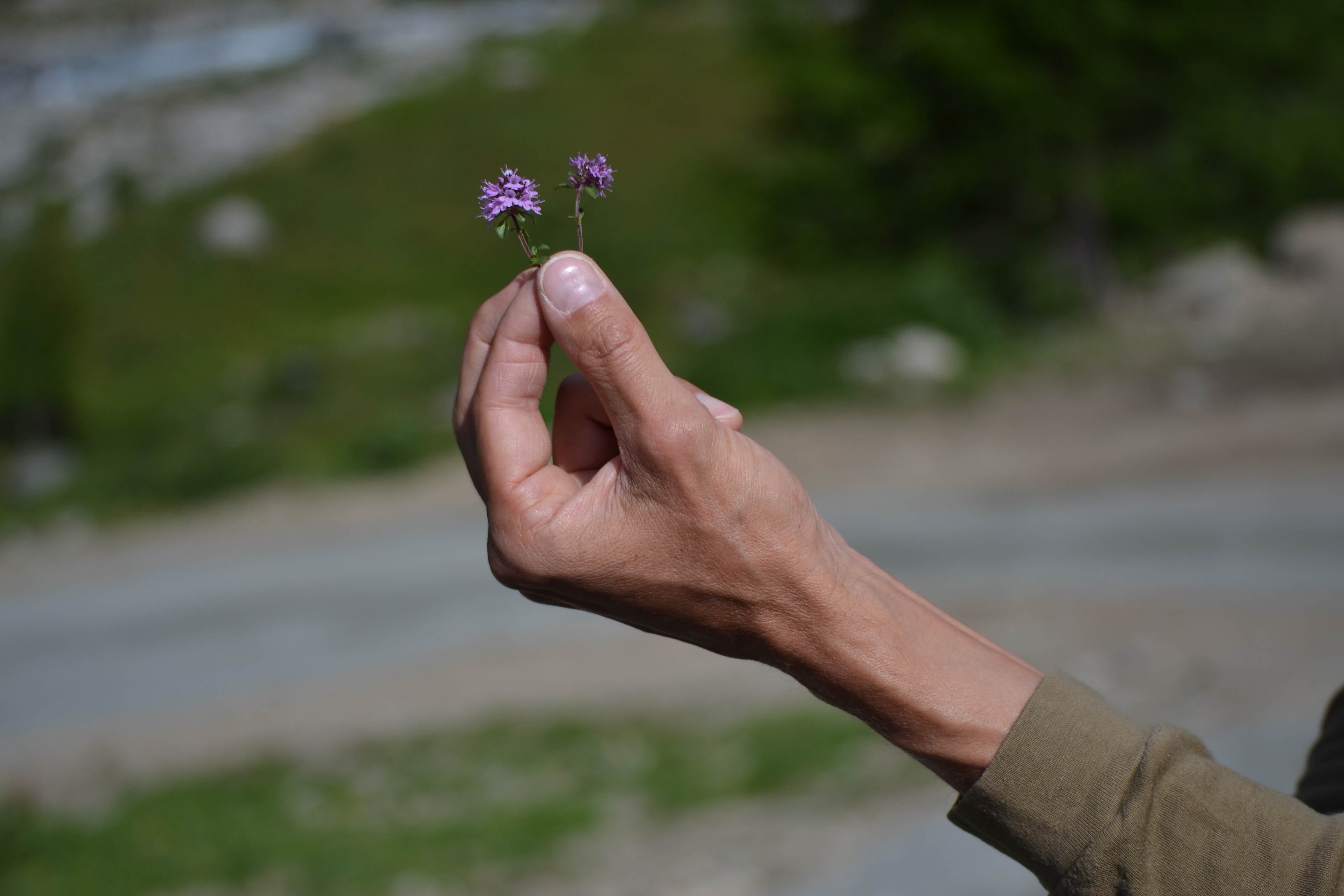
Flowers found along a hiking trail: one is a hermaphrodite, one is a female of the same species. This made for an interesting science lesson from Dieter Ebert along the trail. Guarda, Switzerland.
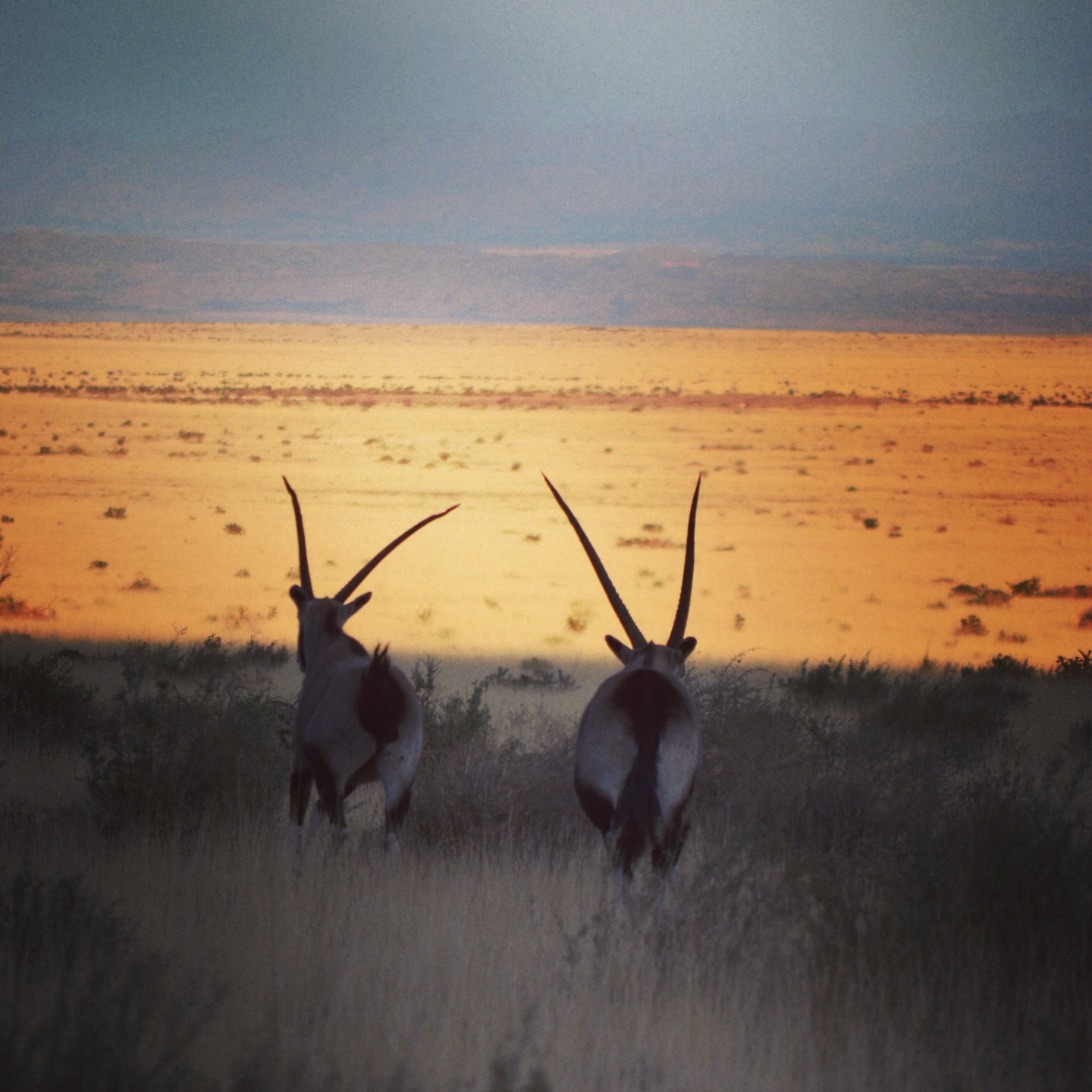
A pair of oryx walking in early morning desert sun, La Jolla, New Mexico (oryx are invasive in NM, imported from the Serengeti as game)
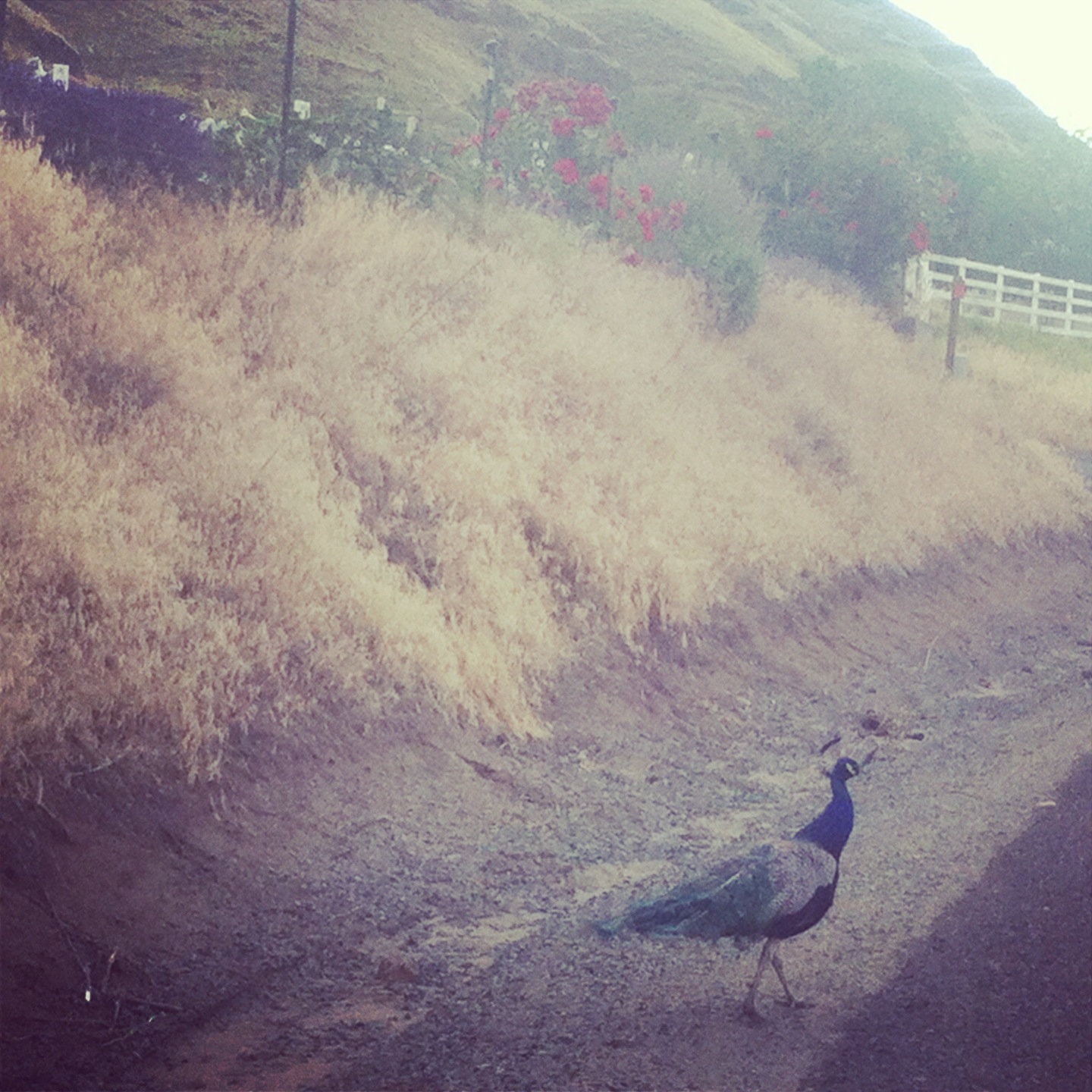
Peacock crossing, Washington State
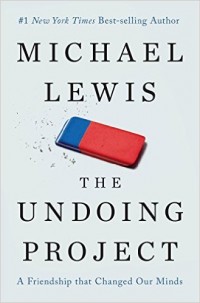 I just finished reading The Undoing Project by Michael Lewis. He’s the guy who wrote Moneyball and The Big Short, riveting books about the arcane subjects of choosing baseball players and the subprime crash of 2008. This latest book is even better. The Undoing Project is one of the best science books I have ever read. It has fascinating science as well as love, obsession, envy, triumph, failure, self-doubt, arrogance, humility and war. It’ll make a fantastic movie and might do more than even The Double Helix to explain to non-scientists how science gets done — and how it is such a human endeavor.
I just finished reading The Undoing Project by Michael Lewis. He’s the guy who wrote Moneyball and The Big Short, riveting books about the arcane subjects of choosing baseball players and the subprime crash of 2008. This latest book is even better. The Undoing Project is one of the best science books I have ever read. It has fascinating science as well as love, obsession, envy, triumph, failure, self-doubt, arrogance, humility and war. It’ll make a fantastic movie and might do more than even The Double Helix to explain to non-scientists how science gets done — and how it is such a human endeavor.


